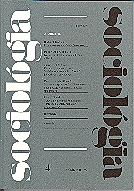Televízia v literárnej komunikácii - sprostredkovateľ, regulátor a "gatekeeper"
Television In Literary Communication: Mediation, Regulation, Gatekeeping
Author(s): Pavol RankovSubject(s): Social Sciences
Published by: SAV - Slovenská akadémia vied - Sociologický ústav
Keywords: Television; literary communication; mediation; regulation; gatekeeping
Summary/Abstract: Television In Literary Communication: Mediation, Regulation, Gatekeeping. The paper describes relations between TV and literature. Rooted in sociology of literature it shows TV as an important element of the communication chain between writer and audience. Traditional model of literary (print) communication (author - book - readers) needs some more elements. There are mediators divided into two main groups: gatekeepers and regulators (R. Hiebert, D. Ungurait a T. Bohn). Both groups consist of either individual or institutional participants. Gatekeepers are those who are active before publishing (editors, publishers) and regulators who can promote a book but cannot influence its existence itself (book shops, libraries or referees). The role of mass media (especially TV) in mediation of literature seems to be not a minor. TV is a regulator (advertisements and programs about books) as well as a gatekeeper (films based on books and TV adaptations of literature). Content analysis of 34 days (550 hours) of broadcasting of Slovak television STV 1 shows that 40.35 per cent of TV fiction was based on books and literature. Only 8.71 per cent of TV days were without films based on books. This result confirms opinions of J. Baudrillard, H. Arendt, J. Hall and W. Benjamin about TV recycling of traditional high culture which is losing its former aura. STV 1 has used to introduce names of book writers as parts of titles of some TV films. Allusions on literature can be found in some films (mainly cartoons) even they are not adaptations. Two-thirds of TV days are those with literature having its place in different programs (discussions, news). The most important TV program about literature was "900 Seconds About Books" with advertisements and information about literary life. From quantitative point of view it informs well, but selection of translated fictions follows rather commercial purposes than artistic ones. An audience can also be influenced through TV fiction where books and reading are presented. One can see fiction with characters reading or speaking about books on STV 1 everyday. The book is usually presented as an interesting entertainment. This survey proves that TV is an important mediator in literary communication. TV brings information rooted in literature to non-readers' group, too.
Journal: Sociológia - Slovak Sociological Review
- Issue Year: 1997
- Issue No: 4
- Page Range: 427-436
- Page Count: 10
- Language: Slovak

